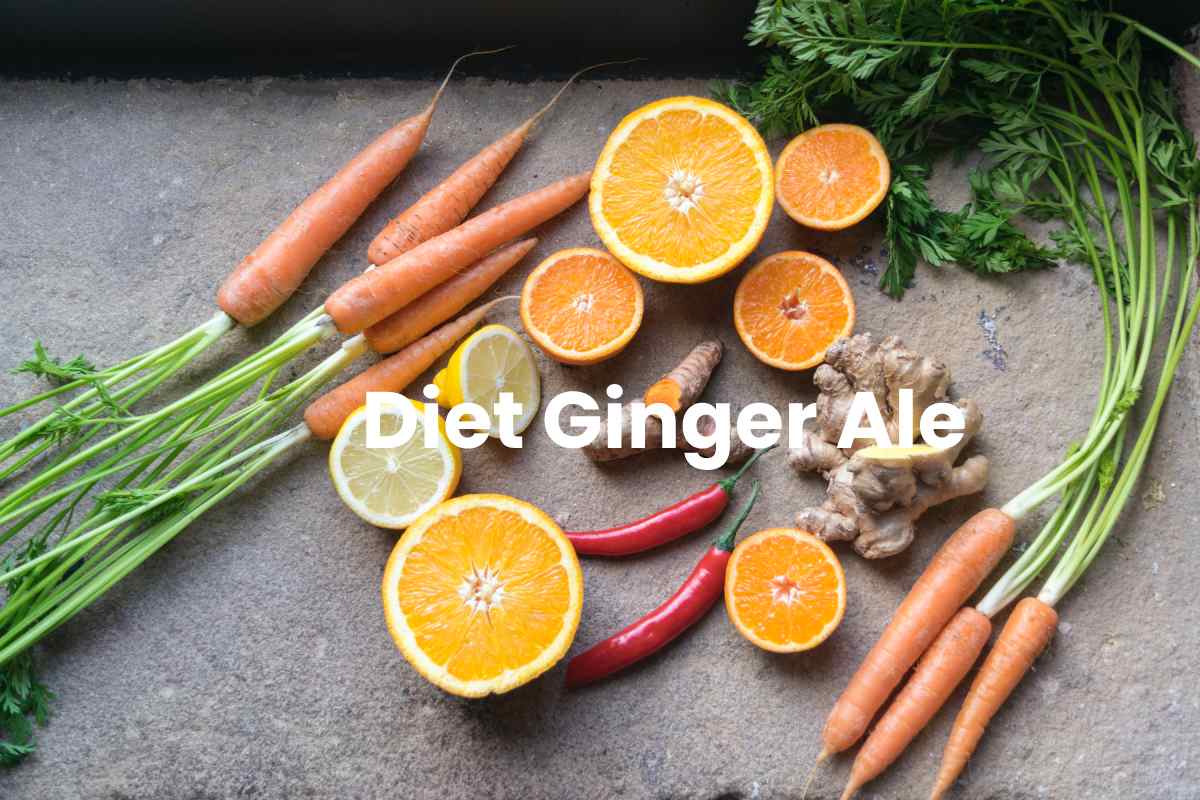Table of Contents
What is ginger ale?
Ginger Ale is a carbonated beverage flavoured with the spice ginger. People typically consume it independently but sometimes use it in mixed drink recipes. Manufacturers classify most commercial ginger ale as soda. They make ginger ale by mixing carbonated water with sugar or high fructose corn syrup and either natural or artificial ginger flavouring. Some brands add other ingredients as part of their “natural flavouring.” These combinations of ingredients are proprietary blends, meaning that the companies keep them private. However, a more traditional style of diet ginger ale is available in certain stores and online. This style uses yeast or ginger bugs as a microbial starter culture. A ginger bug is similar to the SCOBY, or starter culture used to make sourdough.
Diet Ginger Ale
Diet Ginger Ale is famous as a soft drink and a mixer in cocktails and punch. It is sometimes used by non-drinkers or in the performing arts as a non-alcoholic substitute for champagne or beer since the beverages resemble each other in appearance. Ginger ale is also added to beer to make shandy.
Benefits, Types, and Potential Side Effects
- Ginger ale is a popular type of soda made with ginger. Many people drink ginger ale to relieve nausea, but you can also enjoy it as an everyday beverage.
- Since ginger ale has been around for a long time, you may wonder if it’s good for you or has any benefits.
- This article explains the benefits and downsides of drinking ginger ale and reviews the different available styles.
- Studies have found that people who regularly consumed sugar-sweetened drinks, including soda, had higher body weights and more visceral fat than those who didn’t.
- Research has also suggested that eating a lot of sugar is related to developing dental cavities, cardiovascular disease, obesity, type 2 diabetes, and other chronic health conditions.
- It’s important to note that the sugars naturally present in foods such as fruits and dairy products don’t have these harmful effects
- The Dietary Guidelines for Americans suggest keeping your added sugar consumption under 200 calories per day for a 2,000-calorie diet.
- Consuming ginger ale may cause bloating, burping, and increased gassiness. These effects are due to carbonation and are familiar with any carbonated beverage.
- Bread or kombucha. It’s derived from either the ginger beer plant or fresh ginger root. As it ferments, beneficial bacteria and yeasts grow and produce natural carbonation.
Types of ginger ale
Ginger ale comes in several varieties. Some of the most popular types of ginger ale are:
- This category includes sodas and the traditional ginger ales described above. They contain ginger, sugar or high fructose corn syrup, and carbonation. They may also have other ingredients, depending on the brand.
- “Dry” seems to be a marketing term brands use to describe ginger ales with a spicier, “drier” ginger flavour due to how manufacturers source and process the ginger root.
- This type of ginger ale contains artificial or calorie-free sweeteners instead of sugar.
The best ginger ale depends primarily on your taste and ingredient preferences.
Benefits
- While ginger ale isn’t a healthy food, it may offer a few benefits if it contains real ginger root.
- Ginger root is the underground stem of the ginger plant. It has a long history of medicinal and health uses, especially in the digestive system (1Trusted source, 2Trusted source).
- Powdered ginger root is sold as a dried spice for cooking. However, it’s also the leading flavouring agent in ginger ale.
- Studies have shown that ginger may offer the following health benefits — but these effects apply to ginger itself, not ginger ale specifically.
Conclusion
Ginger may have anti-inflammatory and antioxidant properties. It may also help with headaches and nausea and benefit heart health. However, many commercial ginger ales contain little ginger and a lot of sugar. Generally, ginger ale is safe for most people to consume in moderation. However, you may want to keep the following potential side effects in mind.

